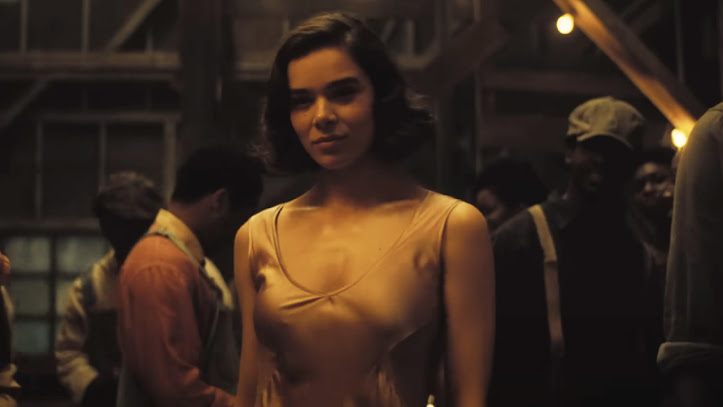Hats off to Ryan Coogler for turning out this vibrantly bloody cracker with only his fifth feature. It's also quite a hand brake turn after two Black Panther films and one Rocky spin-off to deliver a singular story like this (I'm presuming there'll be no Sinners Cinematic Universe but I could be wrong). I say singular but actually, this owes a lot to Tarantino, and many other genre directors. I'm dancing around the issue here as the best way to watch this is to be completely unaware of what you're going to get.
What I can say is that this is great fun. It really zips along, there's hardly a scene without forward momentum. Even the wonderfully ambitious musical numbers (relax, it's not a musical) add background to the story. Coogler's script crackles, especially in the mouths of the excellent cast - more on them later. One of the best things about this is that it disguises itself really well, you're not sure where it's going until it arrives there, and the set-up is very assured.
In a pistachio nutshell, twin brothers Smoke and Stack (both played incredibly well by Michael B. Jordan) return to their Mississippi hometown in 1932, intent on using their ill-gotten gains to open a music hall. Word has it they worked for Al Capone in Chicago and they've returned with a reputation to uphold.
The first third of the film contains the building blocks - buying the barn from a greasy white landowner, rounding up old friends to staff the joint, renewing past relationships. A key point is the introduction, in the very first scene, of young Sammie (Miles Caton), the preacher's son and guitar wizard, who may well be the innocent cause of all the mayhem to follow.
In the starring role(s), Jordan channels a young Jamie Foxx but he's become a really confident, accomplished performer in his own right (certainly much better than in Black Panther, where I thought he was too stagy, too cool for school). As Delta Slim, Delroy Lindo is fantastic, bringing some Spike Lee cred to the film and Hailee Steinfeld as Mary is a knockout, easily her best performance since, well, probably True Grit when she was a kid.
The theme of freedom, particularly black freedom is at the forefront. I guess being set in Mississippi in 1932, this is near unavoidable. When the Smoke/Stack twins buy the property from the 'Chekhov's gun' geezer and he tells them that 'the Klan don't exist round here no more', we just know that bollocks will resurface later in the film.
There's also a flirtation with a kind of spiritual rewind, even a fast-forward too, relating to the power of music to tap into a peoples' timeline (or flat circle, as Matthew McConaughey or Nietzsche might say). This idea floats that every so often a singular talent appears who is able to inadvertently commune with the nether world.
This is all fun nonsense but I liked how music eventually triumphed over religion, and I even had a fair bit of sympathy for the traditional 'villains' of the piece. They displayed a very nuanced malevolence, which the first end credit sequence illustrated well. Coogler works this cleverly by having these fantastical elements co-opt the real world racist murderers of the era. I don't think it's a coincidence that of the many races in the film (Black, Asian, Native American, White), the evil, real and unreal, is personified by the white folk. I suspect there will be a load of social media white supremacists getting their piss boiled about this.
Sinners is still showing on many screens around Australia (and the world). It's a brilliantly tooled film with excellent performances, some great music and more than a few laughs as well. Try to see it without too much research. You won't regret it.
See also:
There's one obvious bellwether that I won't mention but you'll get it after you see it (1996 was the year). Some elements of the film reminded me of Quentin Tarantino's Inglourious Basterds (2009), but for more distraction, Alan Parker's great Mississippi Burning (1988) is slightly related.




Comments
Post a Comment